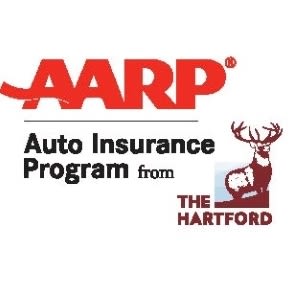
Looking to save money on car insurance? If you’re like most people, you’re probably starting online. It’s a solid plan, as you can save plenty by shopping around and the internet makes it easy to compare prices and plans. At least that’s what you think when you first sit down in front of your computer—but the fact is that shopping for auto insurance online can be downright confusing and outright frustrating.
Type “auto insurance quotes” into a Google search and you’ll receive upwards of six million results. That’s a whole lot of information — and not all of it is created equal. So, how do you know who to trust, and where to look for reliable insurance information? Here’s what you need to know.
Do Your Research
Before you even sit down to begin the process of searching for a new insurance policy online, spend some time educating yourself on the market and what you’ll need. Which carriers are available in your state? Of those, who are reviewed and rated favorably, and why? What does your state require in terms of minimum coverage? What unique discounts might you be eligible for?
Once you’ve done that and you’re ready to go out and obtain some quotes, have certain information available at the ready. For instance, many websites will ask you what year, make and model you’re driving; how many miles you drive per day; when your last claim was, etc. Pulling out the details of your current policy and having it handy will help.
Be Careful What You Search For
When you’re searching for information online, it’s tempting to click the first link and call it a day. That’s not always a bad plan, so long as you know there’s a strong chance you’re clicking on a paid advertisement. If you look closely, you’ll likely see that the top three to four listings flagged are ads or sponsored. These paid advertisements are not necessarily the most relevant results – they’re simply the result of how much an advertiser is willing to pay to rank at the top of the results page.
And insurance companies are some of the biggest spenders out there, with direct insurance sellers GEICO, Progressive, Allstate and State Farm reaching into their deep pockets to appear at the top of many car insurance searches.
You’ll come across a lot of information on your quest for the best policy. Here’s the good, the bad and the ugly about each online shopping method.
Insurance Company Websites
As with everything, there is the good old-fashioned way of doing things. For purchasing insurance online, that’s visiting insurance carriers’ websites directly.
The Good: An insurance company’s own website offers the most direct way to get a real-time quote on auto insurance. It’s simple, safe and quick.
The Bad: You are not receiving comparative price quotes from multiple insurance companies. If you want to comparison shop using this method, be sure to set aside some extra time. You’ll have to enter your data multiple times, on multiple sites.
The Ugly: Insurance companies spend upwards of $1 billion per year in advertising. That money comes from somewhere, and it just may be your pocket. The cost of advertising is often passed along to the consumer. Your “savings” may not be what you would expect by going direct.
Aggregator/Lead-Generation Websites
Investors are flooding the insurance technology space with cash, leading to the formation of hundreds of new insurance sellers and distributors. These companies, known as insurance aggregators or lead-generators, promise to make comparison shopping easy by claiming to offer multiple insurance quotes quickly and easily.
The Good: These creative new technologies can make shopping for insurance a snap, enabling you to receive multiple quotes at once. One company lets you upload a picture of your license to quickly obtain quotes from their insurance carrier partners.
The Bad: You may be asked to disclose a lot of personal information – and some of it is not necessary to provide you with an insurance quote. That information may be sold to insurance carriers and agents.
The Ugly: Due to the above, you may end up being bombarded with email or telephone solicitations. We tried out one of the largest auto insurance lead-generation firms in the United States, supplying all the information it requested. In the end, we didn’t even receive comparative insurance quotes. We received only one, from a large, well-known carrier – along with numerous phone calls and emails from companies to whom we presume the company had sold our information.
Digital Insurance Agents
The money that’s flooding into the insurance technology industry has also led to the advent of slick websites selling insurance digitally. While they look high-tech, many of these businesses follow an old-school model. They act as licensed agents receiving commissions from a smaller number of insurance companies to sell their products, just like your real-life agent.
The Good: Like traditional insurance agents, most digital agents can get a handful of comparative price quotes from different carriers that have appointed them to sell their products. Most agents understand that to attract and retain customers, they need to be looking out for their customers’ best interests.
The Bad: Agents partner with certain insurance companies and typically receive commissions or other incentives based on the volume of premium they sell with them. These incentives can mean that it’s not always in the agent’s best financial interest to find you the best price from the most reputable company. Instead, some agents may offer options that result in higher commissions for them, but not necessarily the best option for you.
The Ugly: In many cases, insurance companies that sell through agents leverage their large marketing budgets to reward their agent partners with financial incentives that have nothing to do with the customer experience. This overhead, combined with the commission payments these companies make to their agents, could make your insurance more expensive with a lower quality carrier.
As you can see, there’s no one perfect way to shop for car insurance online. What the insurance industry really needs is a true consumer-centric model, one that allows customers to get comparative insurance quotes, alongside consumer-generated ratings of these companies, without requiring that they hand over boatloads of unnecessary personal information. Empowering yourself as a consumer with information, strategies and the unbiased reviews of your peers will help you to wade through the bad and the ugly to get to the good.







